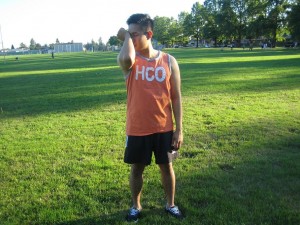Meniere’s disease is a disorder of the inner ear causing spontaneous episodes of dizziness or a sensation of spinning motion together with changing loss of hearing, ringing of the ear known as tinnitus, and sometimes there is a feeling of fullness or pressure in the ear.
People in their 40’s and 50’s are more prone to this condition but it can also happen to anybody even children.
Symptoms
- There is a recurring episode of dizziness along with same sensations experienced like spinning quickly and suddenly stop. There is also a feeling as if the room is spinning and the person can lose his/her balance. Severe dizziness can cause vomiting and nausea.
- Hearing loss of the person fluctuates in the early stage of the disease, but some people with this condition have permanent loss of hearing.
- There is a ringing, buzzing, whistling, hissing and roaring sound in the ear, known as tinnitus.
- A feeling of fullness in the ear and an increasing tinnitus and reduced hearing then followed by a severe vertigo along with nausea and vomiting. This episode may last for 20 minutes or even for hours, and after that symptoms of the condition improves.

Causes
Meniere’s disease can be caused by the abnormal volume of fluids in the inner ear, which is a cluster of passages and cavities called a labyrinth. The outside part of the inner ear is made up of the bony labyrinth and inside it is the membranous labyrinth which is smaller. This membranous labyrinth contains a fluid called endolymph and is lined with sensors that respond to the movement of the fluids. In order for the inner ear to function properly, the fluid will retain a certain volume, pressure and chemical composition. Here are the following causes of the condition:
- An abnormal immune response
- Improper drainage of the fluid due to blockage
- A viral infection
- Migraines and head trauma
- Genetic predisposition
Treatment and home remedies
You can register for first aid training so that you can help out an individual who is suffering from this condition.
- When feeling dizzy, sit and lie down, avoid a sudden movement, bright lights, reading and watching television.
- Rest and do not rush to return to normal activities.
- When getting up at night, there should be good lighting, and use a cane when walking for stability. If experiencing a chronic balance problem and falling, it could lead to a serious injury.
- If the person is experiencing episodes of dizziness, avoid driving a car or operating heavy equipment that can cause accidents.
- Eating six small meals rather than three meals every day.
- Minimize the use of salt in foods since it can cause fluid retention.
- Minimize the use of monosodium glutamate since it can also cause fluid retention.
- Manage stress and anxiety to minimize the severity of the symptoms and enable the person to manage the disorder.
- Avoid consumption of foods that contains caffeine, like chocolate, tea, coffee, and some soft drinks. These foods have stimulant properties that make the symptoms worse.
